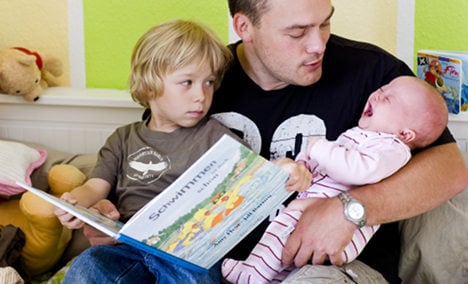Until now non-EU au pairs could only be employed by families in which at least one adult was a German or EU citizen, and where German was spoken as a mother tongue.
But these rules are set to be swept away by new regulations which will not only increase the maximum age of non-EU au pairs from 25 to 27, but also enable them to work in households where the mother tongue is not German – but where German is spoken.
The Süddeutsche Zeitung newspaper said on Friday the new rules which will come into force at the start of July would still bar au pairs from coming to Germany to stay with families from their native countries.
Click here for a discussion of the rules on The Local’s English-language forum Toytown.
The new rules would also make it easier for people seeking asylum in Germany to work, the paper said.
Those who have granted ‘”tolerated” status meaning they can stay in the country even if they have not been granted official asylum, are able to take up paid work after a wait of four years – and will now be able to do so without the specific agreement of the German Employment Agency (BA).
Click here for The Local’s job page
This permission will also no longer be necessary for “tolerated” refugees to start professional training, which they are allowed to do after being in Germany for a year.
Although the number of people seeking asylum in Germany is rising, the number of those being granted permission from the BA to work has dropped dramatically over recent years. In 2007, the BA green-lighted 10,000 people to work while in 2009 this was just 3,700 and in 2012, only 828 were officially allowed to work.
The Local/jcw



 Please whitelist us to continue reading.
Please whitelist us to continue reading.
Member comments